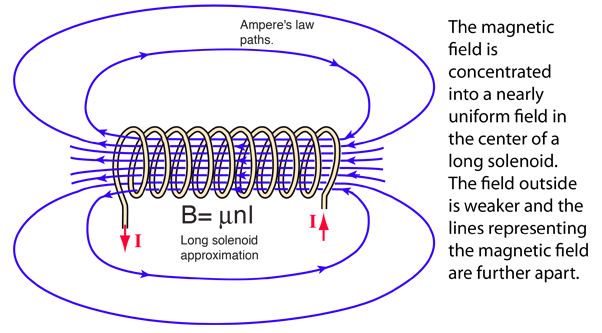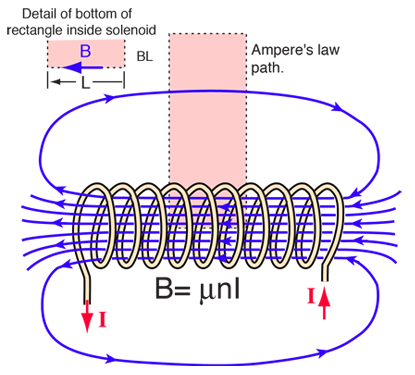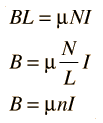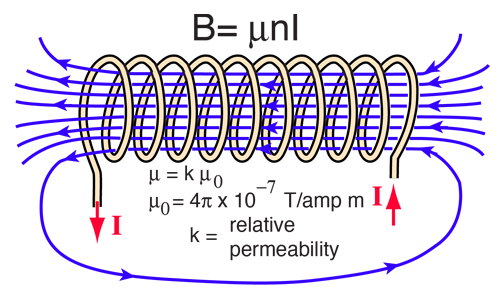Solenoid
A long straight coil of wire can be used to generate a nearly uniform magnetic field similar to that of a bar magnet. Such coils, called solenoids, have an enormous number of practical applications. The field can be greatly strengthened by the addition of an iron core. Such cores are typical in electromagnets.

In the above expression for the magnetic field B, n = N/L is the number of turns per unit length, sometimes called the "turns density". The magnetic field B is proportional to the current I in the coil. The expression is an idealization to an infinite length solenoid, but provides a good approximation to the field of a long solenoid.
| Derive field expression | Calculate field | Field of current loop |
| The solenoid as an inductor | Superconducting magnets |
Magnetic field concepts
Currents as magnetic sources
| HyperPhysics***** Electricity and Magnetism | R Nave |



